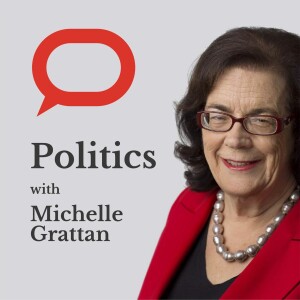
Politics with Michelle Grattan
News:Politics
Julian Assange, the founder of WikiLeaks, is facing extradition to the United States after this was given the green light by the British Government. Assange faces charges of espionage over the publication of classified information about US actions in the Iraq War.
Barrister Greg Barns has worked pro bono on Assagne’s case for the last nine years as part of the Australian Assange campaign.
Barns argues the Assange issue “goes to fundamental questions like freedom of the press and freedom of speech.”
The election of the Albanese government has reignited calls for Australia to do more to try to bring Assange home.
“We’ve certainly been heartened by the approach taken by the new government,” Barns says.
“I think Anthony Albanese himself has been committed for some time now in his public statements and certainly been supportive privately of Assange’s position. He’s made that clear in a number of statements with a theme really that this has gone long enough.”
“There has been a marked change in rhetoric on the part of Mr Albanese, but also I think in his very telling statement that he did not want to pursue this matter through megaphone diplomacy, which we respect, because of course you’re dealing with Australia’s closest ally.”
“He wants to do something, but he wants to do it in a way that respects the friendship between Australia and the United States.”
On what US President Joe Biden should consider when it comes to the relationship with Australia and the issue of Assange, Barns notes Biden has “given a number of speeches now talking about democracy and the importance of democratic values”.
“This is an opportunity to assert those values by saying that freedom of speech and freedom of the press are fundamentally important in a democracy and in the democratic world. And so there are certainly plenty of avenues and plenty of reasons why President Biden might deal with this matter.”
“This case has gone on too long. There are fundamental principles at stake and it’s time to end it.”
More Episodes
AGL chief economist Tim Nelson on what to do with Liddell
 2017-09-21
2017-09-21
Judith Brett on The Enigmatic Mr Deakin
 2017-09-18
2017-09-18
Mark Butler on energy uncertainty
 2017-09-12
2017-09-12
Nick Xenophon on media reform
 2017-09-04
2017-09-04
Mathias Cormann on the same-sex marriage postal survey
 2017-08-21
2017-08-21
Derryn Hinch on surviving the Senate
 2017-08-11
2017-08-11
Tiernan Brady on same-sex marriage showdown
 2017-08-03
2017-08-03
Michael Cooney on an Australian republic
 2017-07-29
2017-07-29
Peter Jennings on the home affairs department
 2017-07-19
2017-07-19
Graeme Samuel on data governance
 2017-07-14
2017-07-14
Anna Krien on the climate wars
 2017-07-03
2017-07-03
Alan Finkel on the future of Australia’s energy market
 2017-06-24
2017-06-24
Gladys Berejiklian on the need to reform federal-state partnerships
 2017-06-24
2017-06-24
Josh Frydenberg, George Christensen and Mark Butler on the Finkel review
 2017-06-15
2017-06-15
John Blaxland on handling Islamist terrorism
 2017-06-06
2017-06-06
Matt Canavan on Adani
 2017-06-01
2017-06-01
Dennis Richardson on telling it like it is
 2017-05-25
2017-05-25
Chris Bowen on Labor’s budget responses
 2017-05-24
2017-05-24
Budget reaction: Mathias Cormann and Anna Bligh on the new bank tax
 2017-05-10
2017-05-10
John Daley on the budget
 2017-05-10
2017-05-10
Create your
podcast in
minutes
- Full-featured podcast site
- Unlimited storage and bandwidth
- Comprehensive podcast stats
- Distribute to Apple Podcasts, Spotify, and more
- Make money with your podcast
It is Free

- Privacy Policy
- Cookie Policy
- Terms of Use
- Consent Preferences
- Copyright © 2015-2024 Podbean.com


 iOS
iOS Android
Android